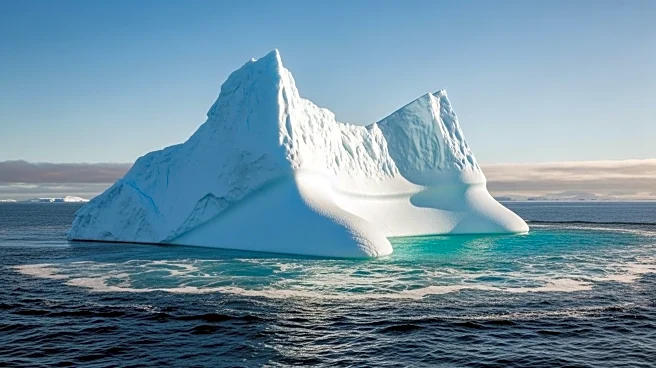What's Happening?
Recent research has revealed that strong tides are significantly contributing to the melting of Antarctic ice shelves. Scientists have been monitoring the Ronne ice shelf, using hot water drilling to place sensors at its base. The findings indicate that tides create friction and slow currents beneath the ice, leading to increased warmth and accelerated melting. This discovery highlights the weakening of ice shelf foundations, which diminishes their ability to prevent land ice from flowing into the ocean. The study underscores the importance of ice shelves in curbing sea level rise and maintaining ecological balance.
Why It's Important?
Ice shelves play a critical role in slowing the flow of ice sheets into the ocean, thereby mitigating sea level rise. Their decline poses a threat to Antarctic wildlife and global sea levels. The melting of ice shelves can disrupt food systems, increase disease spread, and exacerbate extreme weather events, impacting communities worldwide. The research emphasizes the urgent need for action to preserve these natural buffers, as their loss would accelerate environmental changes and pose significant risks to ecosystems and human populations.
What's Next?
To preserve ice shelves, a dramatic reduction in harmful pollution is necessary. Current efforts are insufficient, prompting discussions on geoengineering as a potential intervention. While controversial, targeted measures could slow melting as part of a broader strategy. Public awareness and support for clean energy initiatives are crucial in driving policy changes and reducing pollution. The study calls for collective action to protect ice shelves and mitigate climate change impacts.
Beyond the Headlines
The research highlights the ethical and environmental challenges in addressing climate change. Geoengineering, while potentially beneficial, raises concerns about unintended consequences and the need for comprehensive understanding before implementation. The study encourages reflection on political choices and their impact on environmental policies, urging individuals to consider the long-term implications of their actions.











